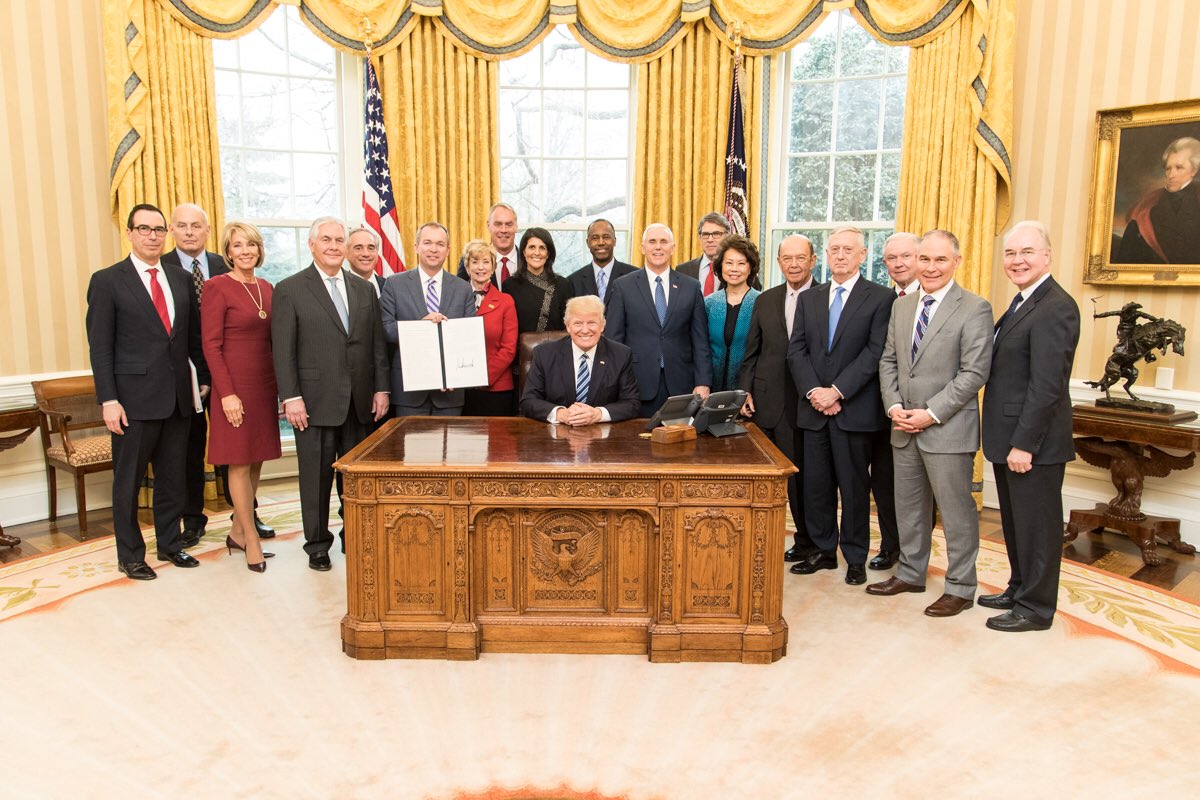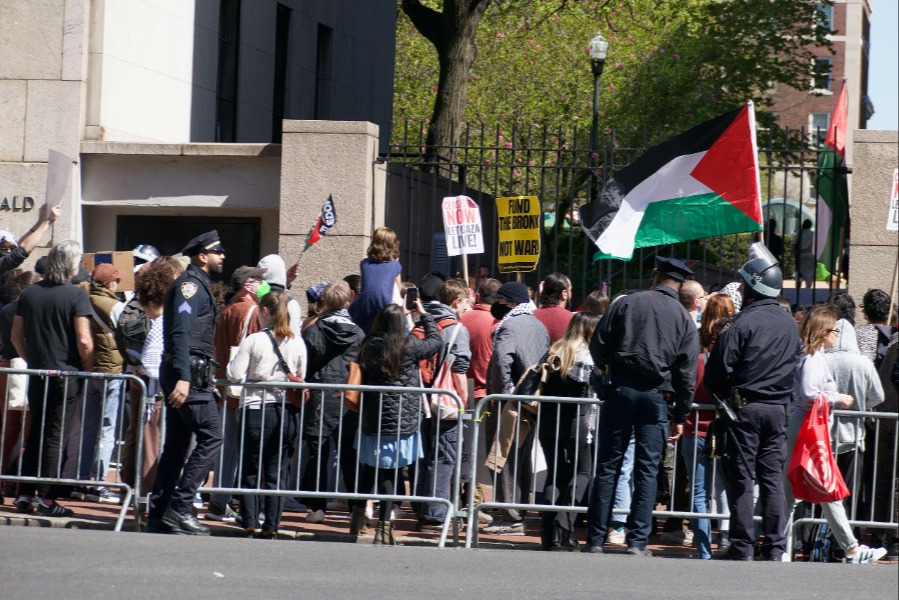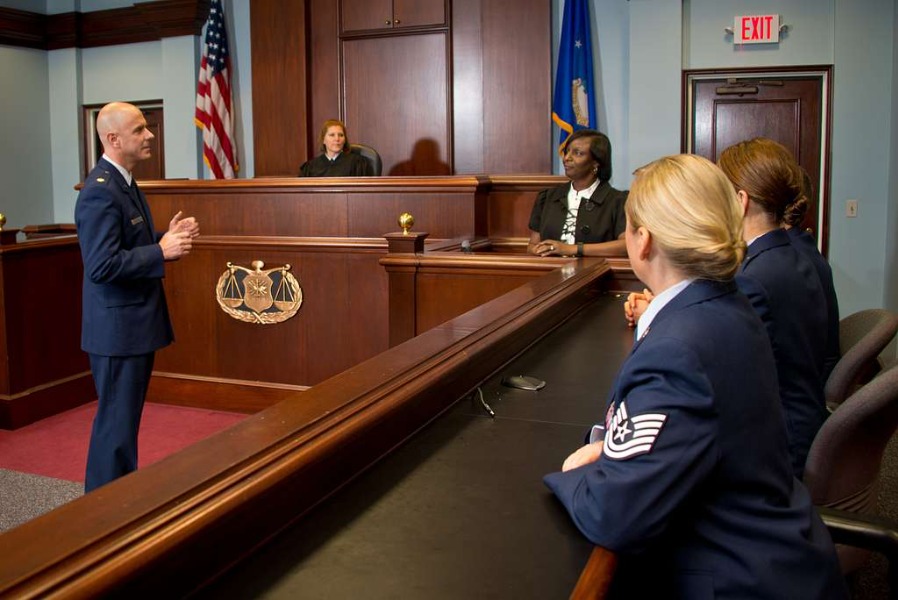A Modest Proposal for the New Travel Ban: Swear It Under Oath
The Trump administration recently unveiled a new version of the travel ban, and questions immediately arose concerning whether pending challenges to the previous order have become moot.

Published by The Lawfare Institute
in Cooperation With

The Trump administration recently unveiled a new version of the travel ban, and questions immediately arose concerning whether pending challenges to the previous order have become moot. In the longer run, however, the legal vitality of the president’s new order will hinge on the purported findings the administration has appeared to rely on and the degree of deference that should be afforded by whichever court first adjudicates the inevitable challenge to the order.
The basic problem is this: The new order purports to be based on extensive fact-finding and deliberation. But the result is almost exactly the same as the old versions—which relied on little or no substantive policy processes and came on the heels of the president’s campaign statements that he wanted to ban Muslims from entering this country. So the obvious question is whether all this new fact-finding is pretextual. Here’s one approach the administration might take: Cabinet-level officials should declare under oath that the process leading to the new order did not have any pre-ordained outcomes.
The new order bans a substantially similar set of people from entering the United States as the previous one did. Virtually all travel into the United States is banned for nationals of Iran, Libya, Syria and Yemen; immigration from Somalia is also banned, though non-immigrants, subject to enhanced security procedures, may visit. The main differences from the old version are that Sudan has been removed from the list and Chad and North Korea have been added. Venezuelan government officials and their families are also now banned.
The text of the new order purports to show that it resulted from extensive study and fact-finding. Sections 1(c) through 1(e) describe a process through which the Department of Homeland Security (DHS), in consultation with the State Department and the intelligence community, undertook a multi-factored review of the adequacy of information provided by foreign governments about travelers to the United States, foreign governments’ management practices for travelers’ identities and their cooperation with U.S. counterterrorism efforts. Section 1(f) describes diplomatic efforts by the State Department to get countries identified as “inadequate” or “at risk” based on these factors to improve their practices. And Section 1(g) describes a determination by DHS as to which countries ultimately came out as “inadequate” after these efforts.
The administration is certain to argue that these types of findings are entitled to absolute deference. The Department of Justice has already made these deference arguments to the Supreme Court with respect to the earlier order, which had a much shorter paper trail. How can private citizens possibly challenge an assessment by DHS (the argument will go) that a country like Libya has “‘inadequate’ identity-management protocols [and] information-sharing practices” and is prone to other “risk factors”?
Usually, these types of assessments do get an enormous amount of deference. But this is not a usual case. The first version of this order was issued just seven days after President Trump took office, and it banned travel from many of the same countries—Iran, Iraq, Libya, Somalia, Syria, Sudan and Yemen—based on no fact-finding whatsoever. As Sally Yates, the former acting Attorney General and Deputy Attorney General testified to Congress in May, the first order was not even reviewed by national security experts within the Department of Justice. And of course, there is a long trail of statements by President Trump—both on the campaign and after his inauguration—evidencing a desire to ban Muslims from entering the country.
The other troubling aspect of the new order’s purported fact-findings is that many countries actually fail to meet the U.S. government’s desired level of information-sharing when it comes to foreign travelers. For example, the Government Accountability Office noted in a May 2016 report that even among the 38 countries participating in the Visa Waiver Program—that is, low-risk, typically allied countries that already have information-sharing agreements with the U.S.—more than a third were failing to share terrorist identity information pursuant to those agreements. Some of this is further complicated by the fact that privacy laws in many European countries can prevent those countries from sharing requested information with the U.S. Indeed, the European Court of Justice recently invalidated an agreement through which the European Union agreed to share airline passenger name records with Canada.
So it is not hard to imagine how a process purportedly based on the adequacy of information-sharing could be gerrymandered to include certain desired countries while excluding others. DHS could simply start with a wide swath and then remove those that nominally agree to make improvements, those that are deemed to cooperate sufficiently with U.S. counterterrorism efforts or those that are otherwise deemed strategic allies.
Any court reviewing a challenge to the new order will, therefore, have to weigh the president’s plain statements of discriminatory intent against purported findings by Cabinet-level officials about national security threats. For a court to strike down the new order, it may effectively have to call these senior officials liars. To uphold the order, on the other hand, a court could have to shut its eyes to the president’s statements—and to the reality that the new order looks remarkably like the old one.
Given all this, the government should be put to the test of its arguments: The officials most directly responsible for this new order should have to swear under oath that they had no instructions as to which countries their review ultimately needed to find were “inadequate” and that they never had any other type of instruction as to particular countries that needed to end up on an exclusion list. It won’t be enough for the Justice Department—through the Office of the Solicitor General or, if the challenge is heard first by lower courts, through DOJ’s Civil Division—to make these types of representations. After all, these components of the Justice Department do not engage in counterterrorism policymaking. The most they will say is that the executive branch is entitled to complete deference and that these internal decision-making processes should be afforded a presumption of regularity. Indeed, there will probably be a good deal of indignant pearl-clutching if and when the challengers to the order suggest that its underlying findings are pretextual.
Yet the history of these travel bans has proceeded in anything but a “regular” fashion. If the administration wants the benefit of deference to its purported national security decisions, then it should be willing to have the people responsible for those decisions swear under oath that their assessments resulted from a legitimate policy process that was free from any predetermined outcomes. The highest-level officials most likely to be able to speak to these issues authoritatively are White House Chief of Staff John Kelly (who was secretary of homeland security until the end of July); Elaine Duke, acting secretary of homeland security; and Tom Bossert, the president’s homeland security adviser. Others could include Secretary of State Rex Tillerson, Director of National Intelligence Dan Coats and Dana Boente, the acting Assistant Attorney General for National Security.
Administration officials would no doubt react indignantly to the suggestion that they should have to back up the claims made in a presidential order with sworn affidavits from Cabinet secretaries. But there is ample precedent for using sworn statements from high-level officials as a mechanism to ensure at least some degree of accountability. When the government invokes the state-secrets privilege in litigation, for example, it typically includes a sworn declaration from the Cabinet-level official in charge of the department or agency invoking secrecy. The Foreign Intelligence Surveillance Act (FISA) also requires official sign-offs from the Attorney General and multiple other high-level officials before certain representations can be made to the FISA court. These mechanisms ensure that individual, named officials—who are not litigators but instead are responsible for knowing the underlying facts—are willing to stand behind the statements made to courts.
Here, the government could voluntarily attach a sworn declaration to a filing defending the new order (a step that would probably be most appropriate before a district court). That is what the government does, for example, when it invokes the state-secrets doctrine or argues in a Freedom of Information Act case that documents need to be withheld to protect national security. If the government is not inclined to take this step, a court could encourage it to do so by hinting (perhaps strongly) that, absent this kind of declaration, it will not give the government’s deference arguments much weight.
Of course, even sworn assertions by Cabinet officials should not entitle the government to absolute deference, and the courts will still need to judge for themselves whether the new order is motivated by animus against Muslims. The president’s credibility on this issue has already been repeatedly questioned by the courts. Other officials who support him and this new order should have to put their own names on the line.
The author worked on an amicus brief in support of the respondents in the pending Supreme Court challenge.





